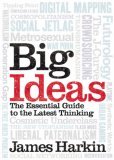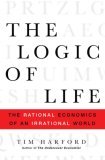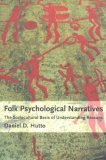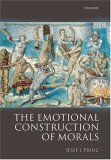February 6, 2008
“When copies are free, you need to sell things which can not be copied.”
Kevin Kelly discusses sources of value that cannot be copied in the new network economy: immediacy, personalization, interpretation, authenticity, accessibility, embodiment, patronage, and findability. (found via 43 folders)

See also ‘Out of Control‘ & other books available to read online.
Comments (0)
- culture
January 25, 2008
sp!ked review of books takes a look at ‘Big Ideas: The Essential Guide to the Latest Thinking’ by James Harkin, finding it “gently withering throughout” and: “Insofar as it inserts the ideas discussed within a historical  context, Harkin’s introduction is indispensable.” The review discusses happiness as an example of Harkin’s approach.
context, Harkin’s introduction is indispensable.” The review discusses happiness as an example of Harkin’s approach.
Comments (0)
- culture,new books
January 20, 2008
The Logic of Life: The Rational Economics of an Irrational World by Tim Harford (author video on the Amazon page).
by Tim Harford (author video on the Amazon page).

In this deftly reasoned book, Harford argues that life is logical after all. Under the surface of everyday insanity, hidden incentives are at work, and Harford shows these incentives emerging in the most unlikely places.
Using tools ranging from animal experiments to supercomputer simulations, an ambitious new breed of economist is trying to unlock the secrets of society. The Logic of Life is the first book to map out the astonishing insights and frustrating blind spots of this new economics in a way that anyone can enjoy.
This book reminds me of Freakonomics and has gotten an endorsement from the Freakonomics blog.
The Oregonian has an interview with the author.
Author’s website
Comments (0)
- culture,new books,psychology
January 10, 2008
Recently issued by MIT Press: Folk Psychological Narratives: The Sociocultural Basis of Understanding Reasons (Bradford Books) by Daniel C. Hutto.
by Daniel C. Hutto.

From the book description:
Established wisdom in cognitive science holds that the everyday folk psychological abilities of humans–our capacity to understand intentional actions performed for reasons–are inherited from our evolutionary forebears. In Folk Psychological Narratives, Daniel Hutto challenges this view (held in somewhat different forms by the two dominant approaches, “theory theory” and simulation theory) and argues for the sociocultural basis of this familiar ability. He makes a detailed case for the idea that the way we make sense of intentional actions essentially involves the construction of narratives about particular persons. Moreover he argues that children acquire this practical skill only by being exposed to and engaging in a distinctive kind of narrative practice.
Hutto calls this developmental proposal the narrative practice hypothesis (NPH). Its core claim is that direct encounters with stories about persons who act for reasons (that is, folk psychological narratives) supply children with both the basic structure of folk psychology and the norm-governed possibilities for wielding it in practice. In making a strong case for the as yet underexamined idea that our understanding of reasons may be socioculturally grounded, Hutto not only advances and explicates the claims of the NPH, but he also challenges certain widely held assumptions. For example, he targets the idea that the primary function of folk psychology is to enable us to predict the behaviors of others. In this way, Folk Psychological Narratives both clears conceptual space around the dominant approaches for an alternative and offers a groundbreaking proposal.
Amazon has “Search Inside the Book” for this title.
Comments (0)
- cognitive science,culture,new books,philosophy of mind,psychology
January 6, 2008
The Emotional Construction of Morals by Jesse Prinz (Oxford University Press, Dec. 28, 2007).
by Jesse Prinz (Oxford University Press, Dec. 28, 2007).
 From the book description: “Jesse Prinz argues that recent work in philosophy, neuroscience, and anthropology supports two radical hypotheses about the nature of morality: moral values are based on emotional responses, and these emotional responses are inculcated by culture, not hard-wired through natural selection.”
From the book description: “Jesse Prinz argues that recent work in philosophy, neuroscience, and anthropology supports two radical hypotheses about the nature of morality: moral values are based on emotional responses, and these emotional responses are inculcated by culture, not hard-wired through natural selection.”
author’s website, University of North Carolina, Chapel Hill
excerpts (24 p pdf draft)
article “The Emotional Basis of Moral Judgments,” Philosophical Explorations, March 2006 (16 p pdf)
Comments (2)
- culture,new books,philosophy of mind,psychology







